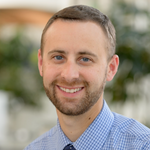Spring 2022 Seminar Schedule.
Join us every Friday (during the semester) from 12:45-1:45 pm online unless otherwise indicated.
Spring 2022 Schedule Summary |
||
| Date | Speaker | Seminar Titles/Topics |
| Jan 28th | Greylin Nielsen and Matt Raifman
PhD Students Department of Environmental Health |
Environmental Health in a World Changed by COVID-19 |
| Feb 4th | Dustin Poppendieck, PhD
Environmental Engineer Indoor Air Quality and Ventilation Group Energy and Environment Division (EED) National Institute of Standards and Technology (NIST) |
What do you do with all the CO2? Examining classroom mitigations and CO2 data in the age COVID-19 |
| Feb 11th | EH Faculty Lightning Talks | Meeting the moment: How BU SPH EH faculty have engaged in public health research and practice during the COVID-19 pandemic |
| Feb 18th | Emily Hammel and Alina McIntyre
PhD Students Department of Environmental Health BUSPH |
Defining PFAS: Implications for Fluorinated Pharmaceuticals, Exposure Assessment, and Risk
and Keeping Cool in an Urban Heat Island: Perspectives from Residents of an Environmental Justice Community |
| Feb 25th | Daniel Goldberg, PhD, MS
Assistant Research Professor Environmental and Occupational Health Milken School of Public Health University of Washington |
Using Satellite Data to Quantify Recent Changes in NO2 and its Impacts on Human Health |
| Mar 4th | Matt Bozigar, PhD
Postdoctoral Associate and Pilar Botana Martinez PhD Student Department of Environmental Health BUSPH |
TBD |
| Mar 11th | NO SEMINAR | |
| Mar 18th | Sean Mueller, Sam Hall, and Natalie Banacos
PhD Students Department of Environmental Health BUSPH |
TBD |
| Mar 25th | Al Vega
Director of Policy and Programs Massachusetts Coalition for Occupational Safety and Health |
The Impact of the COVID-19 Pandemic on Workers, their Workplaces and Communities |
| Apr 1st | Keshia Pollack Porter, PhD
Bloomberg Centennial Professor & Chair Department of Health Policy and Management Johns Hopkins Bloomberg School of Public Health |
Transforming Public Spaces to Advance Health Equity |
| Apr 8th | Quinn Adams, Jocelyn Fimbres, and Kathryn Rodgers
PhD Students Department of Environmental Health BUSPH |
TBD |
| Apr 15th | Mariana Matus, PhD
CEO and Co-founder Biobot Analytics |
TBD |
| Apr 22nd | Amina Salamova, PhD, MS
Associate Research Scientist Paul H. O’Neill School of Public and Environmental Affairs Indiana University |
TBD |
| Apr 29th | TBD | TBD |
| May 6th | TBD | TBD |
Spring 2022 Seminar Schedule
January 28th
Speakers:
Matt Raifman
PhD Candidate
Department of Environmental Health
Boston University School of Public Health
and
Greylin Nielsen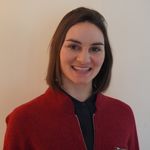
PhD Student
Department of Environmental Health
Boston University School of Public Health
Title: Environmental Health in a World Changed by COVID-19
Bio: The Spring 2022 Gijs van Seventer Environmental Health Seminar Series will focus on how the COVID-19 pandemic has influenced environmental health research and practice. In this kickoff seminar, we will provide an overview of the many ways that COVID-19 has touched our field and how we anticipate these changes will continue to influence the work of environmental health scientists once COVID-19 is in the rear view mirror. We will explore broad themes, including how changes in mobility patterns have influenced ambient air quality, the effects of shifting activity spaces on personal exposures, new and changing environmental exposures in occupational and residential settings, and environmental health research tools and methods that found important uses during the pandemic. This kickoff seminar will set the stage for the speaker series this semester which includes influential voices across a range of environmental and occupational research focuses.
February 4th
**Please note that this seminar will be from 1:30pm-2:30pm**
Speaker:
Environmental Engineer
Indoor Air Quality and Ventilation Group
Energy and Environment Division (EED)
National Institute of Standards and Technology (NIST)
Title/Topic: What do you do with all the CO2? Examining classroom mitigations and CO2 data in the age COVID-19
Summary: In the era of COVID19, we need to quickly find and fix classrooms that have inadequate ventilation to reduce long range SARS-CoV2 transmission. Boston Public Schools has recently released a live, real-time IAQ data from over 5,000 classrooms (https://bostonschoolsiaq.terrabase.com/). This data includes classroom level CO, CO2, PM2.5, PM10, temperature and relative humidity. While this is a world leading measurement and transparency action, it also brings confusion and data overload. How can we best interpret CO2 data to provide meaningful insight into ventilation in classrooms? This talk will discuss CO2 data interpretation, classroom transmission mitigations, and future efforts into understanding indoor air chemistry.
Bio: Dustin Poppendieck is an Environmental Engineer at the National Institute of Standards and Technology. He received his PhD in Civil and Environmental Engineering from the University of Texas at Austin in 2002. He has been investigating indoor air chemistry since 2002. Most of his efforts have involved characterizing primary emission sources and heterogenous reactions at material surfaces. Dustin has investigated emissions from kerosene can lamps used by nearly a billion people throughout the developing world, spray polyurethane foam, and non-smoldering cigarette butts. In addition, Dustin has studied the disinfection of biologically contaminated building materials (i.e., anthrax) using high concentrations of ozone, chlorine dioxide, hydrogen peroxide and methyl bromide. Currently, he leading the preparation of the NIST NetZero energy house for an intensive two month indoor chemistry campaign involving ten different academic research groups.
February 11th
EH Faculty Lightning Talks
February 18th
EH PhD Student Presentations
Speaker:
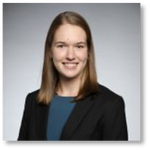
Alina McIntyre
PhD Student
Title:Keeping Cool in an Urban Heat Island: Perspectives from Residents of an Environmental Justice Community
Summary: Extreme heat is a leading cause of morbidity and mortality during summer months in the United States. Risk of heat exposure and associated health outcomes are disproportionately experienced by lower-income, minority, and/or immigrant populations. Additionally, qualitative research on the experiences of residents in Urban Heat Islands (UHIs) is limited. This community-based research examined coping strategies for keeping cool among residents of UHIs in Chelsea and East Boston, Massachusetts, via semi-structured interviews analyzed using qualitative content analysis.This research highlights challenges faced by residents in UHIs: contextualizing vulnerability and opportunities for targeted intervention strategies in a majority Hispanic/Latinx population.
and
Emily Hammel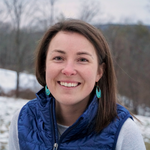
PhD Student
Title:Defining PFAS: Implications forFluorinated Pharmaceuticals,Exposure Assessment, and Risk
Summary: With upwards of 9000+ per- and polyfluoroalkyl substances (PFAS) in existence, the challenges of studying and regulating PFAS individually, or even as small mixtures, seem insurmountable. Multiple PFAS definitions based on structure have been proposed, yet these definitions do not consider the implications for the full suite of organofluorine chemicals. For example, organofluorine-containing pharmaceuticals, whose use may be essential and are found in human serum and wastewater, are not uniformly identified across all definitions. Using nine definitions prepared by various stakeholders, we screened the 360 organofluorine pharmaceuticals approved and used globally between 1954-2021. Definitions range in their inclusion of organofluorine pharmaceuticals (1-100%). The most inclusive definitions include several top prescribed pharmaceuticals, e.g., Prozac, Lipitor, and synthetic steroids. In this seminar the implications of the PFAS definitions on biomonitoring, environmental monitoring, and regulation will be discussed.
February 25th
Speaker:
Assistant Research Professor
Environmental and Occupational Health
Milken School of Public Health
University of Washington
Title: Using Satellite Data to Quantify Recent Changes in NO2 and its Impacts on Human Health
Summary: Nitrogen dioxide (NO2) is a toxic air pollutant that impairs cardiovascular function and exacerbates asthma. It is also co-emitted with carbon dioxide (CO2) and other harmful pollutants (diesel PM, VOC air toxics, heavy metals, etc.), and can create secondary pollutants such as ozone and particulate matter. In this work, we quantify the changes in NO2 before, during, and after the Spring 2020 lockdowns to mitigate COVID-19. We then evaluate how these NO2 changes impacted environmental justice communities within cities. In a last step, we begin to estimate how NO2 is spatially distributed at high spatial resolution (~1km) in nearreal- time and quantify these impacts on human health.
Bio: Dr. Goldberg is an Assistant Research Professor at the Milken Institute School of Public Health at George Washington University in Washington, DC. Dr. Goldberg graduated from the University of Maryland in 2015 with his Ph.D. and completed his post-doctoral research at Argonne National Laboratory, a department of Energy National Lab, in Chicago, IL. Dr. Goldberg uses satellite data to quantify the human exposures to air pollution around the world. His most recent work involves using the TROPOMI satellite instrument to identify changes in air pollution emissions and concentrations due to the COVID-19 lockdowns. He holds a “Tiger Team” leadership position on the NASA HAQAST (pronounced hay-kast) science team, and has made impactful contributions to several additional NASA-sponsored science teams. He actively collaborates with scientists and policymakers from a variety of organizations, and is happy to be here speaking with you today.
March 25th
Speakers: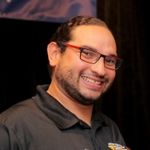
Director of Policy and Programs
Massachusetts Coalition for Occupational Safety and Health
Milagros Barreto
Director of the Immigrant Worker Center
Massachusetts Coalition for Occupational Safety and Health
Rick Rabin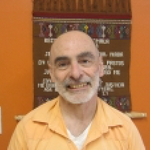
Trainer and Technical Consultant
Massachusetts Coalition for Occupational Safety and Health
Title: The Impact of the COVID-19 Pandemic on Workers, their Workplaces and Communities
Summary: Worker health and safety has never been prioritized as much we have seen over the last 2 years during the course of the COVID-19 pandemic. In this session, you will learn more about the work MassCOSH, the Massachusetts Coalition for Occupational Safety and Health, a Boston area nonprofit, has been focused on for over 40+ years as well as hear more about some specific cases and worker stories that have shown how this pandemic has made it more difficult for some workers in certain industries to remain safe, keep their families from becoming sick and avoid becoming yet another statistic included in the total number of workers we believe have gotten sick or died as result of workplace exposure to this virus. In particular, we will focus on sharing the stories of low wage, BIPOC and immigrant workers who were disproportionally affected at higher rates than other workers over these past 2 years.
Bios: For over 20 years, Al Vega has worked primarily in the nonprofit social justice field with a focus on using worker safety and health to engage all workers to become more empowered in their workplaces and engaged citizens in their communities to advocate for good jobs and a better quality of life for all. He joined MassCOSH in 2009 in an administrative role and quickly got involved in many of MassCOSH’s core programs (Teens Lead @ Work & the Immigrant Worker Center) through health and safety trainings (indoor air quality, hazard & body mapping, worker rights, etc) and campaigns that directly impacted the most vulnerable workers from many cities around the state. Most recently, he has worked to make immediate change in schools and HeadStart buildings through the Healthy Schools Initiative. He serves in the role of Director of Policy & Programs, where he continues to build on and create new relationships with allies, partners, foundations and other organizations to support MassCOSH and its policy initiatives that push for systemic change to ensure better working conditions for all workers. He has extensive experience working with coalitions (unions, community organizations, worker centers and government agencies), which are crucial to the work of MassCOSH and has played key roles for the organization to be both recognized in the community and have national visibility and reputation. Al also serves as the Chair of the National COSH’s (Council for Occupational Safety and Health) Executive Board, is on the MA Jobs with Justice Executive Board and is currently the Unit 1 President of United Steel Workers Local 9358, which is an amalgamated local also representing MassCOSH staff and workers from the MWRA (MA Water Resource Authority). His leadership for young workers has also been recognized in the last few years as he serves as a VP on both Executive Boards of the Greater Boston CLC and the Massachusetts AFL-CIO, representing young trade unionists and their issues throughout the region and state. Most recently, Al was appointed to the Commonwealth of Massachusetts’ Future of Work Commission by MA Attorney General Maura Healey, to lend his experience and advocacy to ensure worker health and safety is prioritized and centered as part of this group’s work over the next year.
Milagros Barreto (Director of the Immigrant Worker Center) and Rick Rabin (Trainer and Technical Consultant). Bios below: Milagros Barreto came to MassCOSH in 2013 as an Operation Associate in the office and also as a Worker Center Hot Line Coordinator. Previous to MassCOSH, Milagros has a strong background in Human Resources and because of the involvement on the Worker Center program she developed and interest in helping low wage immigrants workers. Milagros has a thirst for social justice which took her to become the Worker Center Organizer since the beginning of 2015, she became immediately active in developing worker’s campaign to ensure the protection of immigrant workers.Currently in her role of Director of the Immigrant Worker Center, she has helped in recovering thousands of wages stolen from workers. In addition, Milagros helped to design Workers Organizing campaigns, Health and Safety committees and identifying hazards in the workplace. Milagros has a passion for teaching which she developed while working as an organizer as she teaches workers about their health and safety rights using her facilitation skills. She believes that everything begins with knowledge and by knowing your rights. Moreover, Milagros is bilingual (Spanish/English), and has a Bachelors in Business Management , and an OSHA 10 certification. She is a big believer of women’s leadership in the workplace and is involved with WILD- Women’s Institute Leadership Development as their Board Member. Milagros also represents MassCOSH on Greater Boston Legal Services as one of their Board Members and she is also a member of United Steel Workers (USW Local 9358).
Richard Rabin has been a volunteer with MassCOSH for over 30 years. During this time, he directed the Occupational Lead Poisoning Registry at the Massachusetts Department of Labor for over 20 years. He has published several articles on both child and adult lead poisoning. He also initiated the first lawsuit against the lead paint industry. Rick is OSHA certified and has led OSHA 10 and RRP trainings in both Spanish and English for workers in a range of industries and provides his expertise and feedback to support many of MassCOSH’s programs and initiatives.
Seminar format: Hybrid

